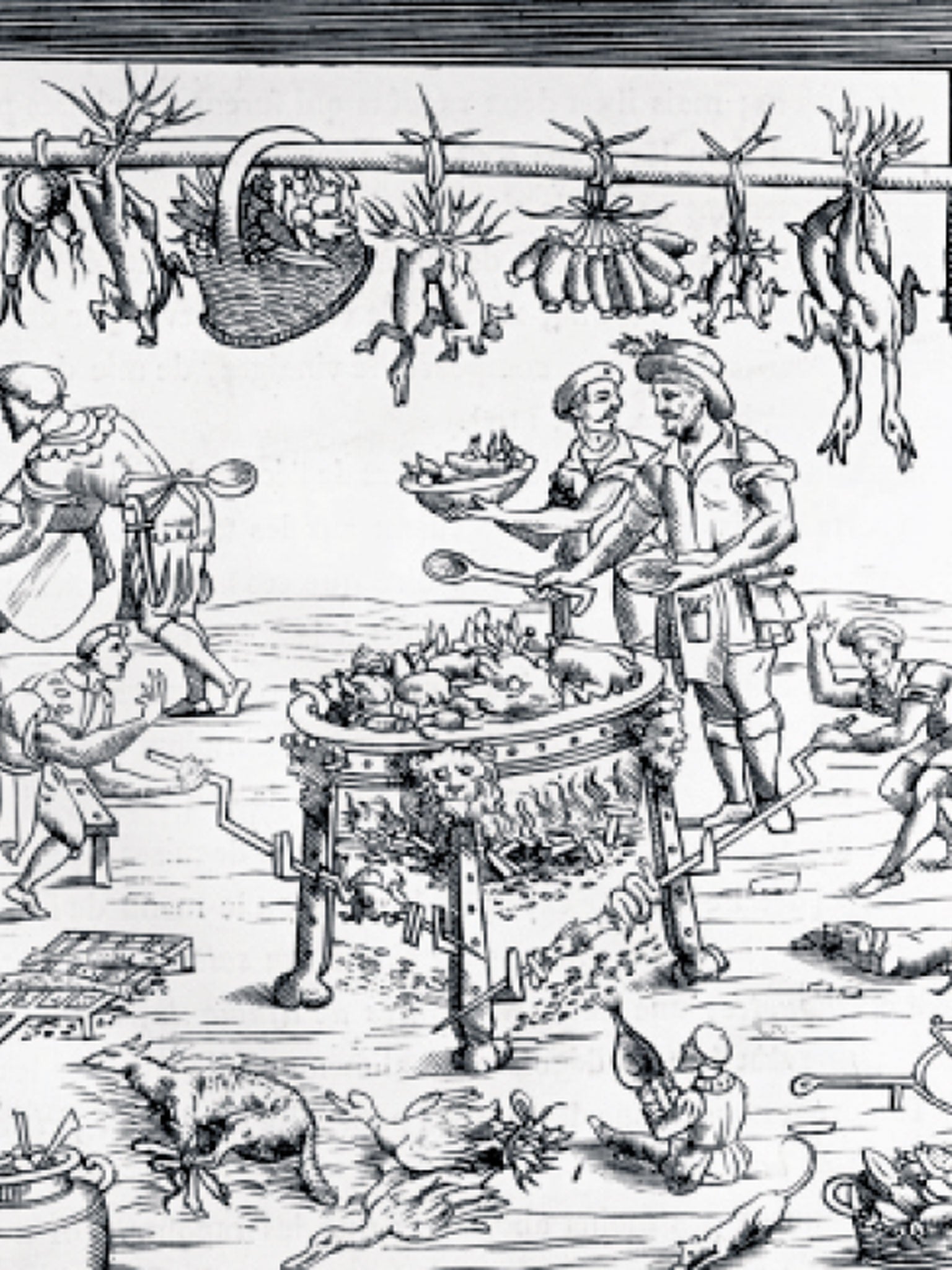Bellygods and gigoles tell our story in food
English is richly seasoned with words forged at the table

As a lexicographer on Countdown, I spend a lot of time researching the history of words, and two news stories – the horsemeat scandal and the obesity epidemic – show the extent to which food has shaped our language. The meat scandal has been called a shambles, and the word is entirely appropriate. The "shambles" were the bloodied stalls of medieval butchers –all that carnage led to our use of the word for something messed up.
For the Anglo-Saxons, food determined a person's position in society. The words "lord" and "lady" began as the hláfweard and hlæfdige, or loaf-keeper and loaf-kneader. A servant, conversely, was a dependent, so the hláf-æta – bread-eater: he also subsisted on the "umbles" or cheap offcuts – the origin of the expression "humble pie". A "pittance" was originally a small portion of food allowed to a monk or poor person. Some masters were more generous: to "foster" first meant to feed someone – an idea that's retained in our word "helping" for a serving of food. A "companion" was someone you broke bread (pane) with (com), and a "mate" a comrade at your "mess", or table.
Food as a determiner of status continued as English and society evolved. After 1066, the conquered Britons tended the sheep, pigs, and cows (names rooted in Anglo-Saxon), while the Norman elite ate the results – mutton, pork and beef all come from the French.
Over the next centuries, food, and its effect on body shape, began to lose its associations with wealth, and became a metaphor for character. The result was a lexicon of terms in which plump equalled good, and thinness meant poverty, of spirit as much as means. In the 19th century, if a man got a "lumping pennyworth", he had a bargain – a "lumping" was a great quantity for the money – and the expression was used for a man who married a fat woman. Fleshiness denoted all that was healthy, fertile, and even well-mannered; "buxom" originally meant pliant and obedient.
Thinness, as we know from fairy-tales in which the wicked are bony and sharp-featured, reflected mean-spiritedness and cruelty. A Long Meg was an insulting nickname for a tall, thin woman – a "gammerstang". Hard, gaunt features were also the hallmark of a "pinchbeck" or "chittyface", each a term of reproach in the 1700s that drew on the idea of a waspish or thin "beak". And who knew that a "gigolo" was the male counterpart of a "gigole" – a tall, thin woman of dubious morals. One of the earliest definitions of "harlot' was "a greedy gut", while Dr Johnson included in his Dictionary the pithily descriptive "bellygod": a man in love with his stomach.
As dialect began to be collected in the late 19th century, such words as Yorkshire's "gobslotch" emerged, revealing the burgeoning association between gluttony and stupidity. "Gob" retains in dialect the sense it has had since the 16th century: that of a lump or large mouthful of food, especially of raw, fat meat. "Slotch" is a version of slouch, so a gobslotch was an idle, slouching fellow, precursor of today's couch potato.
For the Anglo-Saxons, meat was the main meal of the day, which revolved around "before-meat" and "after-meat". But it has ended up as the metaphor for the most basic: "meat and potatoes" is as far from sassy – from "sauce" – as you can get. Meat has also become a staple of insults – in French as well as English. To call a woman a saucisson is tantamount to calling her a fat old boiler, and a boudin, or meat pudding, is an obliging young girl.
As for the Italians, they have a proverb: "Parla come mangi" – "Speak the way you eat" – meaning, keep it simple and don't try anything fancy. It turns out we've been speaking as we eat all along.
Join our commenting forum
Join thought-provoking conversations, follow other Independent readers and see their replies
Comments